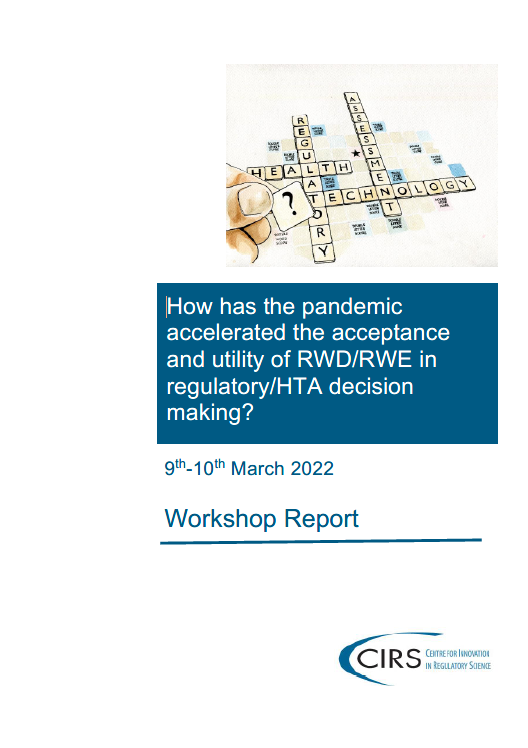This workshop builds on the outcomes of the CIRS Professor Breckenridge memorial workshop in December 2020, as well as the 2021 workshop on utilisation of digital technologies in clinical development.
The data landscape is changing due to the evolution of genomics, proteomics, imaging, clinical data and wearables. However, the use of such data in drug development is still maturing, as highlighted by the recent challenges and learnings of collecting data during the COVID-19 pandemic (for both COVID-19 and non-COVID-19 therapies).
Real-world data/evidence (RWD/RWE) can bring value to every stage of a drug’s life cycle. Although regulatory and HTA submissions are likely to remain focused on randomised controlled trials (RCTs) in the future, these are also likely to be supplemented with RWD/RWE. As more technologically complex innovations are brought through development, there will be a need for early access routes that include robust ways of measuring these products’ promise in the real world. With early access medicines it is important to ensure an ongoing benefit-risk assessment for the regulators and relative effectiveness assessment for the HTA agencies. Thus, the development and alignment between companies, HTA agencies, regulators and payers in the RWD/RWE space is critical. The focus needs to be on an agreement for continuous RWD analysis, not just for the reporting of adverse events.
Indeed, the discussion of post-licensing evidence generation early in development is becoming increasingly important, especially for conditional/early access medicines, where a life cycle approach is needed by both regulatory and HTA assessments. However, this will require regulatory agencies, HTA agencies and industry to come together to standardise datasets, data capture and analysis to ensure regulatory and HTA grade methodologies and data.
Workshop objectives
- Discuss the changing data landscape and provision of fit-for-purpose data for regulatory and HTA decision making, with a focus on use of RWD/RWE.
- Identify through case studies how RWD/RWE has or could be used to enable regulatory and reimbursement decisions through the life cycle of a medicine.
- Recommend stakeholder and collaborative activities to enable both alignment and utilisation of RWD/RWE by HTA agencies, regulators and payers for decision making during a medicine’s life cycle.

